Thus far, we’ve discussed what the narcissist truly is, as well as delving into the fact that narcissists seek out and cultivate relationships with empathic people, such as us, solely for the purpose of creating a unilateral parasitic paradigm for no other reason than to reinforce their sense of self-worth, all the while feeding off of you,  and the love you have to offer, like an emotional vampire. But how? How can intelligent, rational people like us find ourselves on the receiving end of narcissistic abuse, probably not just once, but many times over? Believe it or not, this goes back to our childhood and a trauma, or more than likely a series of traumas, we suffered as children.
and the love you have to offer, like an emotional vampire. But how? How can intelligent, rational people like us find ourselves on the receiving end of narcissistic abuse, probably not just once, but many times over? Believe it or not, this goes back to our childhood and a trauma, or more than likely a series of traumas, we suffered as children.
Whether it was from our parents or another caregiver, we all have some form of hidden childhood trauma that, as empaths, has shaped and molded us into who we are today. More than likely, you longed for your parent’s approval and positive words of affirmation which you rarely, if ever, 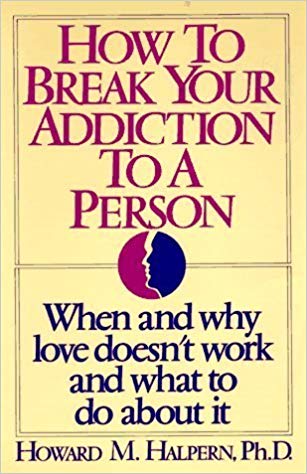 received. The author Howard M. Halpern, Ph.D. wrote a fantastic book, How to Break Your Addiciton to a Person, wherein he addresses and delves into childhood traumas as they are carried forward into adulthood. In his writings, he references a phrase that really struck home for me the moment I saw it: attachment hunger. As a child, I don’t believe any of us has ever truly desired more than a very reasonable level of love and attention from our parents. While that does vary from child to child, whatever level of parental involvement and affection we needed was, well, what we needed to make us feel safe and loved. However, because that level of love and attention was, for whatever reason, denied us as children, our childhood attachment hunger has carried over into our adult lives in the form of longing for the person we’re with to love us the way our parent/s or caregiver/s didn’t. In essence, we are seeking to repair our failed parent/child relationship via our relationship with whomever we are involved, in an effort to reconcile our childhood abandonment issues.
received. The author Howard M. Halpern, Ph.D. wrote a fantastic book, How to Break Your Addiciton to a Person, wherein he addresses and delves into childhood traumas as they are carried forward into adulthood. In his writings, he references a phrase that really struck home for me the moment I saw it: attachment hunger. As a child, I don’t believe any of us has ever truly desired more than a very reasonable level of love and attention from our parents. While that does vary from child to child, whatever level of parental involvement and affection we needed was, well, what we needed to make us feel safe and loved. However, because that level of love and attention was, for whatever reason, denied us as children, our childhood attachment hunger has carried over into our adult lives in the form of longing for the person we’re with to love us the way our parent/s or caregiver/s didn’t. In essence, we are seeking to repair our failed parent/child relationship via our relationship with whomever we are involved, in an effort to reconcile our childhood abandonment issues.
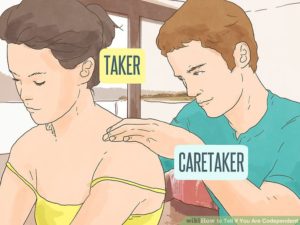 Think about your narcissist. Do/Did they possess any of the same qualities as one or even both of your parents? I’m willing to wager, probably so. I know mine most assuredly did. And, do you recall how you felt when things started going south with your narcissist? Scared? Alone? Helpless? Powerless? Perhaps even finite and small? Just like a child. In his book, Halpern postulates that, when we find ourselves in that mindset, we are once again a child who is now trapped inside of our adult bodies, attempting to cope with this resurfaced trauma; however, because we are, in that moment, a child, we cannot effectively and coherently address and deal with what our infantile mindset is attempting to process. Our mentality, our emotional maturity and adeptness, is the same as that of a terrified child of three, five, eight, ten, or twelve. And this is why, when things hit the proverbial fan with our narcissist, we are absolutely beside ourselves in how to not only address the issue at hand but how to resolve it!
Think about your narcissist. Do/Did they possess any of the same qualities as one or even both of your parents? I’m willing to wager, probably so. I know mine most assuredly did. And, do you recall how you felt when things started going south with your narcissist? Scared? Alone? Helpless? Powerless? Perhaps even finite and small? Just like a child. In his book, Halpern postulates that, when we find ourselves in that mindset, we are once again a child who is now trapped inside of our adult bodies, attempting to cope with this resurfaced trauma; however, because we are, in that moment, a child, we cannot effectively and coherently address and deal with what our infantile mindset is attempting to process. Our mentality, our emotional maturity and adeptness, is the same as that of a terrified child of three, five, eight, ten, or twelve. And this is why, when things hit the proverbial fan with our narcissist, we are absolutely beside ourselves in how to not only address the issue at hand but how to resolve it!
It is here that, generally, one of three self-preservation techniques ensues – fight, flight, or freeze. Think back to your last encounter with your narcissist. What was 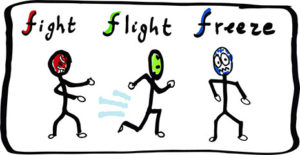 your initial reaction when things first took a negative turn? Were you defensive, perhaps even combative and belligerent? Fight. Or maybe you said little to nothing, grabbed your things, and left so fast there was a vapor trail in your wake. Flight. Or perhaps it was the worst of all, you just sat there, dumbfounded and utterly unable to say, do, or even react in any way while your narcissist unleashed a tirade of belittlement and beratement against you. Freeze. Regardless of your reaction, who were you at that moment? Were you a rational, reasoning, intelligent adult who saw a problem and resigned themselves to resolving it? Or were you frightened, almost to the point of being hysterical, lashing out one minute, then introvertedly withdrawn the next? I’m going to take a guess and say it was the latter.
your initial reaction when things first took a negative turn? Were you defensive, perhaps even combative and belligerent? Fight. Or maybe you said little to nothing, grabbed your things, and left so fast there was a vapor trail in your wake. Flight. Or perhaps it was the worst of all, you just sat there, dumbfounded and utterly unable to say, do, or even react in any way while your narcissist unleashed a tirade of belittlement and beratement against you. Freeze. Regardless of your reaction, who were you at that moment? Were you a rational, reasoning, intelligent adult who saw a problem and resigned themselves to resolving it? Or were you frightened, almost to the point of being hysterical, lashing out one minute, then introvertedly withdrawn the next? I’m going to take a guess and say it was the latter.
You see, that is who our narcissist is, or was if you’re fortunate enough to no longer be trapped in a relationship with them – the manifestation of a voice and presence from our past with whom we are still trying to reconcile long passed grievances and wounds. Our relationship with our narcissist was, on some level, our subconscious attempt to repair something that has been broken in us for a very, very long time. Now please do not 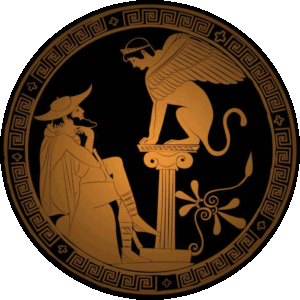 misunderstand. I am in no way implying an Oedipus or Electra Complex. What I’m saying is that, as adults, we are simply hungry for someone to love us the way we longed to be loved as children by those who were instrumental in our lives. And, on some level, our narcissist fits into part of the recollective paradigm that one or both of our parents once filled. Whether it’s controlling and or berating, there is most assuredly a manipulative component that drives us not only to our narcissist, but directly into their waiting and welcoming arms.
misunderstand. I am in no way implying an Oedipus or Electra Complex. What I’m saying is that, as adults, we are simply hungry for someone to love us the way we longed to be loved as children by those who were instrumental in our lives. And, on some level, our narcissist fits into part of the recollective paradigm that one or both of our parents once filled. Whether it’s controlling and or berating, there is most assuredly a manipulative component that drives us not only to our narcissist, but directly into their waiting and welcoming arms.
You see, our narcissist promises us the love, emotional, and physical connections that we have quite literally sought our entire lives. That is why the initial phase with the narcissist, the love bombing phase, feels so good. It’s not just that it’s nice to feel like you are not only someone’s priority but actually their world! Sure! That  feels absolutely amazing! The crux of the issue is that, without exaggeration, you have quite literally longed to feel this kind of love from someone since you were an infant. So, whether it’s been two decades, three, four or more, that is why this thing with the narcissist feels so damned amazing, so comfortable, so peaceful…like home! Because you have not known home until now. And the narcissist knows this. This is why they do what they do to trauma bond you to them because they know exactly how you and I are broken. And they know exactly how to manipulate us so that we will give them the unconditional and boundless love that they crave. But take note of that last part – that they crave. What about us? We simply long to be loved to that depth, as well. However, while the narcissist does initially promise and even deliver the love and connection we have desired for so long on some baser level (the love bombing phase), the reality is that we are nothing more than a source of narcissistic supply for someone far, far more broken than us. And it isn’t long before we find ourselves giving our narcissist 100% of us, while they, if we’re fortunate, give 10% in return. And, as we have noted previously, the one with the most power in any relationship is generally the one least invested.
feels absolutely amazing! The crux of the issue is that, without exaggeration, you have quite literally longed to feel this kind of love from someone since you were an infant. So, whether it’s been two decades, three, four or more, that is why this thing with the narcissist feels so damned amazing, so comfortable, so peaceful…like home! Because you have not known home until now. And the narcissist knows this. This is why they do what they do to trauma bond you to them because they know exactly how you and I are broken. And they know exactly how to manipulate us so that we will give them the unconditional and boundless love that they crave. But take note of that last part – that they crave. What about us? We simply long to be loved to that depth, as well. However, while the narcissist does initially promise and even deliver the love and connection we have desired for so long on some baser level (the love bombing phase), the reality is that we are nothing more than a source of narcissistic supply for someone far, far more broken than us. And it isn’t long before we find ourselves giving our narcissist 100% of us, while they, if we’re fortunate, give 10% in return. And, as we have noted previously, the one with the most power in any relationship is generally the one least invested.
Now, I’m not saying you should resign yourself to refrain from becoming involved with someone until you’re healed. Let’s be honest, that’s simply not going to happen. Firstly, you and I are human and we crave not only to love but to be loved. 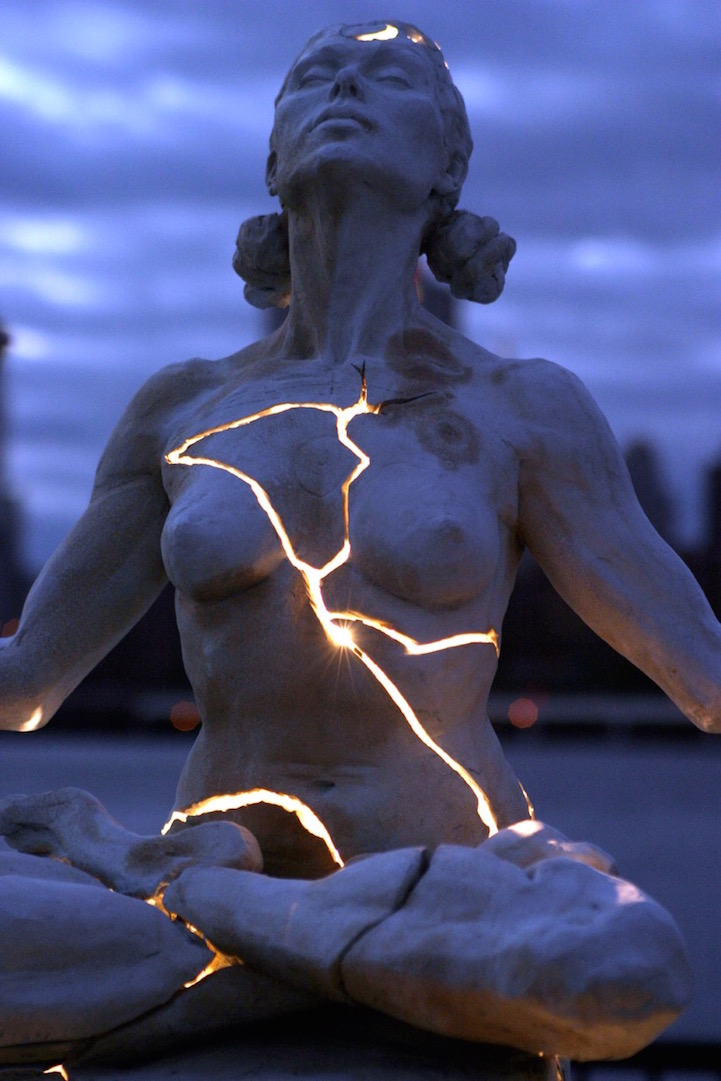 That is a very normal and healthy hunger. Secondly, and more importantly, this is literally who we are. To “heal” us is to take away our very identity because the who that we are is not a who that is healed or whole; however, the broken us are some of the most beautiful souls this world will ever see. Think about it. We are gardeners in a world full of flowers that demand to be tended, cared for, and placated – the narcissists. But instead of incessantly taking, as they do, we can’t help ourselves but to give. And not just give, but give until it hurts, until it takes every last bit of us that there is to give, and even then, we’re still eager to give more.
That is a very normal and healthy hunger. Secondly, and more importantly, this is literally who we are. To “heal” us is to take away our very identity because the who that we are is not a who that is healed or whole; however, the broken us are some of the most beautiful souls this world will ever see. Think about it. We are gardeners in a world full of flowers that demand to be tended, cared for, and placated – the narcissists. But instead of incessantly taking, as they do, we can’t help ourselves but to give. And not just give, but give until it hurts, until it takes every last bit of us that there is to give, and even then, we’re still eager to give more.
There are so many times, throughout my day, that I have to remind myself that it is not my responsibility to give to and for everyone. As much as I long to appease and please, to give and forgive, I have to keep telling myself that my only true responsibility is to myself. Having said that, I cannot stress enough, I am not saying you should be selfish, cold, unforgiving, invasive or, worse yet, an absolutely abysmal and reprehensible person like our narcissist. What I am saying is that if you spend all of your time taking care of everyone else, when will you take care of yourself? When will you take care of your very real and legitimate needs? When did you suddenly no longer matter?
As a child, you were incapable of caring for yourself the way you needed. But now you are an adult and you still deny yourself that same level of love, caring, devotion, commitment, and even forgiveness that you have sought from others since you were that broken, scared child, screaming out to be loved and cared for. Now you love and care for everyone else but yourself. Why? Love yourself! My, God! You. Are. Beautiful! Your heart is beautiful. Your soul is beautiful; you are beautiful. As an adult, you are now perfectly capable of giving yourself that love you never received as a child. And I promise you this: if you begin to love yourself the way you have longed for from such unapologetically abysmal sources as our narcissist, when a fellow gardener comes along, you are both going to instantly be connected because you will both be of one soul, able to care for and show each other the love you have both longed for over the course of decades!  And, with absolute certainty, I can assure you: there will be no sweeter scent than the bouquet you give each other every morning from the garden of love you have planted together.
And, with absolute certainty, I can assure you: there will be no sweeter scent than the bouquet you give each other every morning from the garden of love you have planted together.


Feel free to comment below! ?